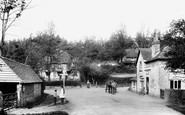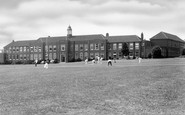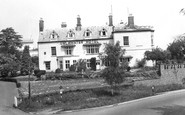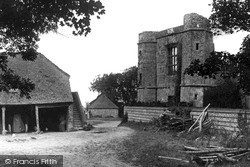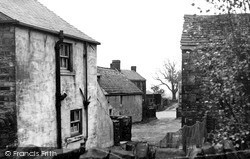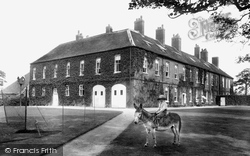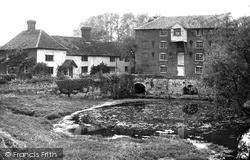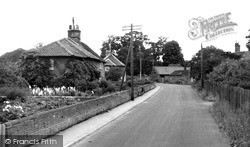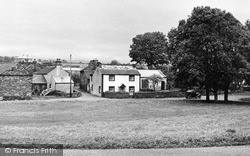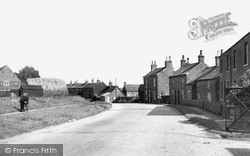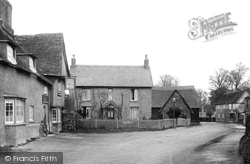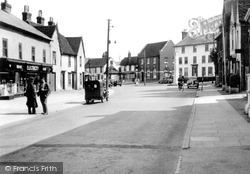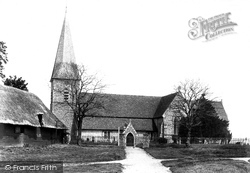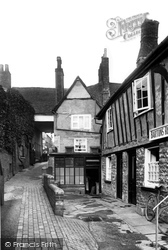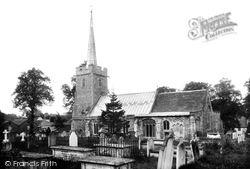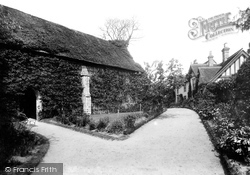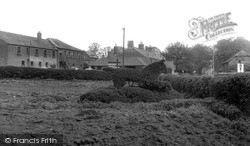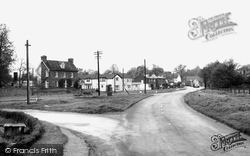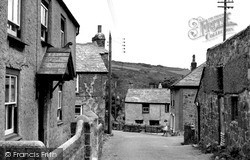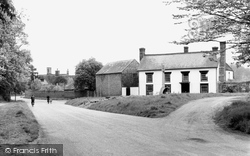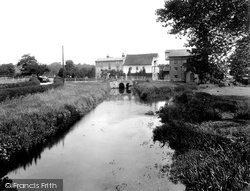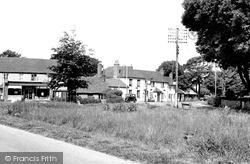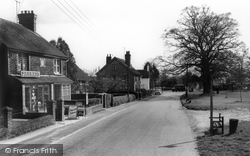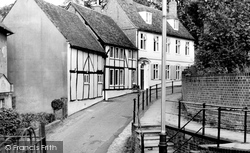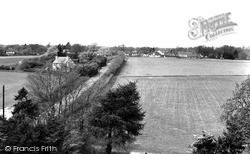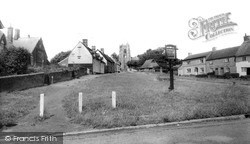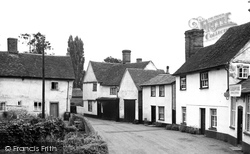Places
Sorry, no places were found that related to your search.
Photos
Sorry, no photos were found that related to your search.
Maps
39 maps found.
Books
Sorry, no books were found that related to your search.
Memories
780 memories found. Showing results 101 to 110.
To Wheatley And Back
After the Second World War and during the austere period of rationing, among the items that were in short supply was coal. People would burn anything in order to keep warm, and many were the trips that I ...Read more
A memory of Intake in 1947 by
To Sea
The Seagoing Years. I must have left the Army sometime in August or September of 1949, and went back to C.J.King & son, tug owners, to carry on with my job as deck boy. This was not to my ...Read more
A memory of Bristol in 1950 by
Times Past
I was brought up in Kemnay went to the old school, same as all my brothers and my father before me In 1964 my father started up his own business as a slater and builder. My earliest memory of Kemnay is the crisp icy morning before the ...Read more
A memory of Kemnay by
Time Gentlemen Please!
We came to live in Thaxted in about 1950, and though we lived in one of the Borough Cottages, Bolford Street, which then were in a bad state, for me, fresh out of an institution ( I was only eight), it was the most wonderful ...Read more
A memory of Thaxted in 1950 by
Time Changes Everything
As I read and reread the memories that are posted on this site, Mitcham and my childhood there become more and more vivid. I can almost smell the grass on the cricket green, just after it was cut. When I was young, Mitcham ...Read more
A memory of Mitcham by
Tilney St Lawrence
My warm and cosy memories of these formative years of my childhood whereby most if not all of the village children as well as attending the village school under Mr. Joseph Burns and Miss Offley was the uplifting ...Read more
A memory of Tilney St Lawrence in 1948 by
Threeways & Churt Post Office
To the left of the little girls in the photograph of Churt Post Office there is a large house that was called Threeways in the 50's and 60's, perhaps it was always called this, I do not know. After WWII my parents, Norman ...Read more
A memory of Churt by
Those Were The Days
I moved to Ireland Wood from Portsmouth when I was 4 years old with my Mum and dad who was in the navy. We lived at 42 Raynel Way. The house was built by the Council. Most of the houses like ours were made of prefabricated ...Read more
A memory of Cookridge by
Those Were The Days
Who remembers being compared to Robbie Burns's "wee sleekit cowring timrous beastie" as we first crept into that hallowed school? Then how we quickly got used to all the pranks and fun that could be had, despite the rather ...Read more
A memory of Redditch in 1953 by
This Picture Is Very Nostalgic For Me,
Walburga Ehrengarde Helena, Lady Paget, 1839 - 1929 Born in Germany was a diarist and the last of Queen Victoria's intimate friends. Lady Paget died of burns after falling asleep by the fire at her home ...Read more
A memory of Newnham in 1963 by
Captions
291 captions found. Showing results 241 to 264.
Situated under the downs, very close to the Long Man, the former manorial grange at Wilmington had, by the 13th century, developed into a small priory.
Most of the cottages were built in stone from the Greenmoor Quarry. The left foreground cottage has gone, but the small house (right) remains, which is connected to a converted barn and stable.
A leisurely country scene; note the lawn set out for games, and the swinging seat under its canopy.
These model estate cottages were built by the Berners family for their agricultural labourers and artisans.
These model estate cottages were built by the Berners family for their agricultural labourers and artisans.
The bottom green, seen here, was at one time a pond where ducks and geese would wander freely. It was said to have been drained in 1841 by a Mr George Brown.
This view looks east along the main street.
The two villages of Offord Darcy and Offord Cluny run into each other. Facing a bend in the road is the Horseshoe Inn; the date 1626 is carved on the jettied cross wing of the inn.
Dunmow`s post office has been in the red brick building (centre) since 1939. A barn, used for meetings by local dissenters, once stood on the site.
This fine Early English church, set back from the village and behind a narrow green, boasts a raised 13th-century chancel and a tapering, shingled broach spire.
This view looks up Olde Barn Passage past Brookes Court. In the distance is Richman's and St Mary's Street.
It is rare in Suffolk to find a spire before the Victorian period. This one is 17th-century. The window of the Cockfield chapel is blocked by later monuments.
A Benedictine priory belonging to Westminster Abbey was established here to the north of Sudbury c1130. This is the 15th-century chapel with nave and chancel in one.
Apparently the horse remained a feature for some years, until building on this land swept it away. The Old Barn is opposite the row of terraced cottages. To the left is Kilburn Yard.
Until the early years of the 20th century, a thriving brewery, which was run by the Brown family, stood on the green.
Polgooth grew up in the 19th century as a mining village to the south west of St Austell.
Flendyshe House, facing the small green, is an early 17th-century house remodelled in 1807. On the green is the war memorial.
The mill complex was owned by Reuben Rackham, who was a maltster, water and steam miller and a coal merchant.
Denmead's local shop advertises Saxa salt in the window. The original village, to the north-east, was known as Barn Green.
Initially a hamlet, the village of Barns Green dates from the Middle Ages, but grew rapidly during the 18th and 19th centuries following the opening of the Mid-Sussex railway line.
Parsons Fee leads south-west from Market Square past Prebendal House, the home of John Wilkes, the radical MP for Aylesbury from 1757 to 1764, and behind high brick walls.
This photograph was taken from the church tower looking north towards the main street. The post mill, which stood to the north of the cottage, was built in 1829 and demolished in 1912.
This tapering green with the church at the top is very similar to the green at Long Melford, although it is smaller.
This hamlet is to the south of Boxford and separated from it since 1975 by the bypass.
Places (0)
Photos (0)
Memories (780)
Books (0)
Maps (39)

